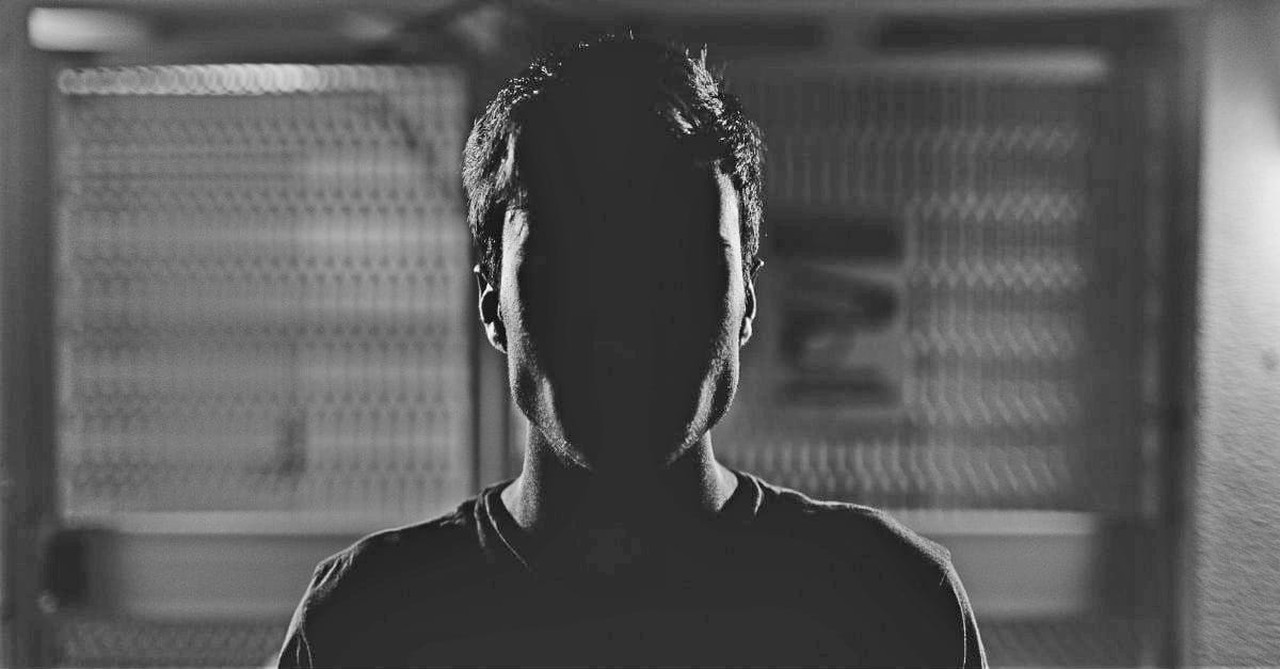
Philip was one of the first deacons in the Church. He was selected by the disciples to be one of the seven to serve the tables in Acts 6:1-6, and he went on to becomes an incredible evangelist soon after that. In fact, when Stephen was martyred, Philip was the one who was sent to Samaria and Judea in order to spread the Gospel past the confines of Jerusalem. And we see that the Lord used him greatly. But, what we also see is the first false convert. Simon, the magician, was a man whom the people practically worshiped. He was able to do incredible tricks that caused the people to say to themselves, “This man has what is called the Great Power of God.” When Philip showed up, the Bible tells us that 1) he believed, 2) he was baptized, and 3) he continued on with Philip. As soon as Peter and John showed up, though, we realize that Simon was a false convert and we are left wondering how did Philip miss it? Perhaps Philip was left wondering how he missed it as well.
Of course, no amount of time spent discipling people is wasted time, but there is a sense in which we want to use our time wisely and be able to water where the grass is green, rather than spend our time watering dead grass. Is there a way to tell? Is there a way to be able to recognize the sheep from among the goats in this life? Well, Simon had four red flags that Luke points out in the short story of Acts 8:9-24 which we can apply to all false converts. These don’t encompass all the red flags, but they are a helpful start.
This article originally appeared on TheCripplegate.com. Used with permission.
Jordan Standridge is a pastoral associate at Immanuel Bible Church in Springfield, VA, where he leads the college ministry. He is the founder of The Foundry Bible Immersion.
Image courtesy: Pexels.com
1. They aren’t sinning against you.

1. They aren’t sinning against you.
SLIDE 1 OF 10
This one is very difficult because it is so personal. We have spent hours upon hours with this person. Sometimes they have spent a lot of time deceiving and lying to us. Sometimes they have manipulated. Others times they have deeply wounded us with, not only their act of walking away, but they have said things or caused damage to us in other ways. In this time, we must remember that although they have hurt us, the One whom they are primarily sinning against is the Lord.
Samuel faced a similar situation in 1 Samuel 8:6. Israel had just requested a King and Samuel saw it as a slap in the face. He had spent years serving Israel as a prophet, with God ruling over the people, in his mind, there was no need for a King; after all, God was ruling! And it greatly displeased him. Feeling rejected, feeling like he had wasted his life, feeling like he had taught for years in vain, the Lord taught him an important lesson. In verse 7, after telling Samuel to give the people what they wanted, He said, “They have not rejected you, but they have rejected Me from being king over them.” With these words, the Lord reminds us that when people sin or reject our counsel, they do so because they are rebelling against the Lord. David, later on in Psalm 51:4 says the famous words, “Against You, You only, I have sinned.” This is not to say that he didn’t sin against countless human beings with his actions, but that one sin against God warrants an eternal punishment, while a sin against man has a finite one.
We must remember, in the moment of disappointment and feeling rejected, that ultimately the person is not rejecting us, but the God of the universe.
Image courtesy: ©Thinkstock/elinedesignservices
2. All it takes is one step to get back.

2. All it takes is one step to get back.
SLIDE 2 OF 10
The beauty of the Gospel is the fact that all it takes for repentance is one step towards God. Whether it is the prodigal son or David in Psalm 51, God is ready to forgive His children at the drop of a hat. Of course, we have to believe in the perseverance of the saints, because God continually promises that He will take all of His elect to Heaven with Him (Eph. 1:13-14, Phil. 1:6, Rom. 8:28-39, John 10:27-30, and more), but we must have a place in our theology for those who walk away for a time who are saved but experiencing much difficulty in their sanctification. Many passages explain the need to “rescue” (James 5:20), confront (Galatians 6:1), and discipline (Matthew 18:17) a fellow believer in order to bring him back into the fold. These verses imply that not only that believers can sin, but that they can sin in ways significant enough that they need help to see the folly of their ways and be brought back into right standing with God. This also implies that all it takes is one step to get back on the right path. This step is a giant step, though, and it is called repentance. The person must admit their sin, ask forgiveness to the Lord and to the people who they wronged, and the Bible says that the brother or sister will be won and rescued and they will be in right standing with God.
This should be an encouragement to those who are experiencing this tragedy of having someone you love walk away, knowing that they could return to the Lord at any moment and that there aren’t a ridiculous number of steps involved in repentance. If you have walked away from the Lord it should be encouraging for you to know that God will forgive you if you repent and all it takes is one step back towards Him.
Image courtesy: Pexels.com
3. You must be the one to go rescue them.

3. You must be the one to go rescue them.
SLIDE 3 OF 10
It is critical for us to understand our role in rescuing a sinner. Too many times we experience was is known as the “Genovese Syndrome.” We think someone else has gone after so-and-so, and, meanwhile, so-and-so never gets approached or confronted in their sin. Obviously, our job is to gently encourage those who have fallen away to consider their ways and to communicate to them the danger that they are in. But, ultimately, it is up to the Holy Spirit to make the change, and it is that person who will be responsible for what he has done.
It is important to note, though, that even though we are not the one committing the sin or walking away, we are, in one sense, responsible for approaching the person and pleading with them to repent. Too many times we sit back thinking someone else has got it when God calls us to do it. This isn’t just for the “super Christian” in the church. This is the calling for anyone. Galatians 6:1 says that anyone who possesses the Holy Spirit is called to go after those who have fallen into sin. In James 5:20, James is speaking to all the church and qualifies anyone who is a believer to rescue those who have fallen away. That means that you who are reading this–if you believe that you are going to spend eternity in Heaven with Christ–that you must go lovingly confront those who have gone out from your church.
Image courtesy: ©Thinkstock/azerberber
4. They may not be saved.

4. They may not be saved.
SLIDE 4 OF 10
I know it may sound crazy that the person you’re thinking of may not be saved, but the apostle Paul experienced the same thing with more than one person in his day. Demas (2 Tim. 4:10), Hymenaeus and Alexander (1 Tim 1:20), and Diotrephes (3 John 1:9) are just four examples of people who walked away from the Lord after years of ministry with the apostle Paul, himself. People he did ministry with, shared the gospel with countless times, who observed him doing miracles, and so much more, simply left the faith seemingly overnight. Of course, no one wakes up one morning and decides to pick up and leave the Lord. It is something that has been brewing for some time, but it can happen to anyone. And it is important for those who have experienced this to be willing to admit that, potentially, this person may not know the Lord. The writer of Hebrews declares that the ones who leave “have gone out from us, because they were never of us” (1 John 2:19). In other words, they left the Lord because they didn’t ever know Him, to begin with.
We must be open to believe this about someone, not for the sake of judgment, but for the sake of knowing how to talk to them when we see them. This becomes even more difficult when it is a family member, but if we trust the Lord and follow the steps assigned to us by Christ in Matthew 18:15-17, then the unrepentant person would have to be treated, at the very least, as if they were an unbeliever, which means that, though they might be saved, we would treat them as if they are not, and withhold communion from them and gently encourage them to put their faith in Christ for salvation.
Image courtesy: Unsplash.com
False converts exist.

False converts exist.
SLIDE 5 OF 10
It is incredibly difficult when someone chooses the world over Christ, something that is unfathomable to many of us.
Over the years I’ve seen that one of the most powerful moments in a new believer’s life is the realization that there is such a thing as a false convert. The sudden realization that salvation is not dependent on a prayer, a baptism or family history propels true believers to a whole other dimension in their walk with Christ. They begin to examine themselves properly (2 Cor 13:5), they become more evangelistic, they care more about theology and they appreciate being at church so much more. Understanding the fact that false converts are a reality is so important for those who call themselves Christians.
There are few things more disappointing than when someone from our church walks away from the Lord. Especially when you’ve spent countless hours not only teaching and discipling that person, but you have shared a myriad of hours of ministry with him. Here are four characteristics that define false converts:
Image courtesy: Unsplash.com
1. They are man-centered.

1. They are man-centered.
SLIDE 6 OF 10
In other words, they like to be exalted by others. They are all about seeking attention and wanting to be noticed.
Notice an important statement in Acts 8:9. Simon claimed to be someone great. Simon was all about exalting himself and stealing from God’s glory. In fact, the people’s response was to exalt Simon to worship-like status, claiming that he had the power of God. When Philip showed up with real miracles rather than tricks, Simon decided to hop on the bandwagon, hoping to retain the influence he had worked so hard to establish. He was absolutely obsessed with his image.
False converts don’t truly love God and don’t care if He ultimately receives the glory from their life; rather, they are simply after the cheap thrills of recognition and attention. A lack of love for God’s glory shows up in a lack of evangelism, and a lack of speaking about God at all. Those who are man-centered only care about how God can affect them and improve their life and aren’t interested in picking up a cross to follow Christ (Luke 9:23).
Image courtesy: ©Thinkstock/JohnLund/SamDiephuis
2. They are not devoted to Jesus

2. They are not devoted to Jesus
SLIDE 7 OF 10
Simon seemed to just go through the motions in Acts 8. As we’ve already seen, he was simply after holding on to his influence and adapting to what the culture around him wanted. Most people in his cult were giving their lives to Jesus, and so, in order to fit in, he also sought to accept Christ. He didn’t truly love Jesus, he simply wanted Jesus to give him what he ultimately sought– the desires of his carnal heart. He completely misunderstood salvation. I mean, he did it all: he believed, was baptized, and followed Philip.
But, as we know, salvation is not actions, but rather, it is a heart change that God does to a person. Ultimately it takes Peter one conversation to realize that this man hadn’t truly been saved. False converts completely misunderstand salvation and think that it is through their actions that they are saved. They might say that salvation is not through works with their lips, but their hearts declare something completely different. They don’t truly love Jesus in their hearts and are only after the benefits of what Jesus can bring to their life.
Image courtesy: Pexels.com
3. They have a selfish attitude.

3. They have a selfish attitude.
SLIDE 8 OF 10
This is where Simon’s motives become clear. Acts 8:18-19 shows us Simon’s heart. He offered Peter and John money to be able to have the Holy Spirit and do the miracles that they were doing. Of course, this is silly to us and shows us a deep misunderstanding of how the Holy Spirit works. But, if we go beyond the surface, we will notice an even greater red flag.
Notice why he wanted the spiritual gifts. He wanted spiritual gifts so that he could be noticed and feel good about himself. He had completely selfish reasons for them. But, a simple reading of the New Testament will teach us that spiritual gifts are only given to us to be able to serve those around us. Their only goal is to serve the other members of the Church.
Today, so many churches promote certain spiritual gifts as more important than the others, and they also encourage those in their congregations to experiment with spiritual gifts that were not intended for them. Even if they do so unintentionally, they are setting up their congregations to see spiritual gifts as a way to promote themselves in front of the eyes of the church. This is a complete misunderstanding of spiritual gifts and it shows a love-of-self that is dangerous at best.
Christ, on the other hand, teaches his disciples that in order to be great one must be willing to serve (Mark 9:35). He then, through the Holy Spirit, gifted each member of the church with spiritual gifts intended to bless the whole body. The Christian life is a life of self-sacrifice, each Christian is called to put selfish desires to death and be willing to put the interest of others above their own (Gal 5:13).
Image courtesy: Unsplash.com
4. They misunderstand repentance.

4. They misunderstand repentance.
SLIDE 9 OF 10
Ultimately, Simon showed a lack of understanding of what repentance is. First of all, he got rebuked by Peter. Peter exposed his heart’s intentions and called him out on his sin. Simon’s response is telling. He cared about what Peter said, but not because he displeased his Savior, but because he was concerned about the consequences. He didn’t want what Peter said would happen to Him. This is worldly sorrow. Look at his response, “Pray to the Lord for me yourselves, so that nothing of what you have said may come upon me.”
Not only was he more worried about his consequences, but he also misunderstood how repentance works. He asked them to pray for him. Repentance is a constant desire to be pure in front of God. Repentance doesn’t need others to intercede for them, but, instead, it is the act of a person who humbles himself before his Father and requests forgiveness and desires to change. And this doesn’t just happen at the moment of conversion. This is continual each and every day.
Jesus’ parable of the unforgiving slave (Matt 18:21-35) teaches a simple fact, and that is if you are unwilling to forgive, then you probably haven’t truly experienced grace. You could also say that someone who doesn’t repent of sin after he becomes a Christian probably isn’t a Christian. A Christian’s humility doesn’t go away at conversion, but rather continues on into his sanctification. As his love for Christ increases, his hatred for sin will increase as well, and it will show itself in a desire to admit sin and continue to repent daily.
False converts hate confrontation. They close up and defend themselves, or, better yet, attack back in order to keep the confronter at bay. They can’t possibly believe that they could have sinned in some way. False converts are prideful and don’t ever own up to sins that they have committed. In other words, they are blind to their sin.
Image courtesy: ©Thinkstock/kevinschreiber
Be thankful for the saints.

Be thankful for the saints.
SLIDE 10 OF 10
Having someone walk away can be extremely painful, but each time it happens, we can be thankful that God has changed our hearts and given us new life. I think that when false-converts walk away, we are also more likely to value the seasoned saints in church around us who have been so faithful to follow Christ for so many years, and who have said, perhaps thousands of times, no to the world and yes to Christ.
Content taken from the articles "4 Thougths about People Who Walk Away from the Lord" and "4 Characteristics of a False Convert" written by Jordan Strandrige and originally published on TheCripplegate.com. Used with permission; please click the links to read the text versions.
Image courtesy: ©Thinkstock/Sean824
Originally published April 21, 2017.







